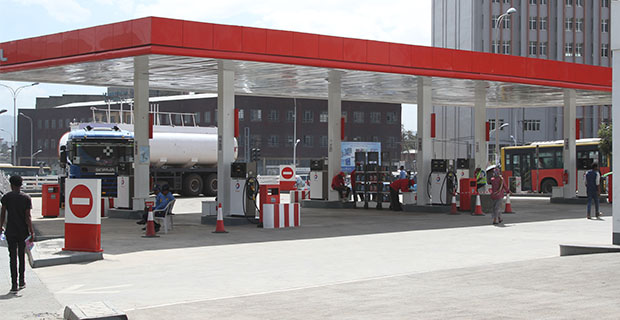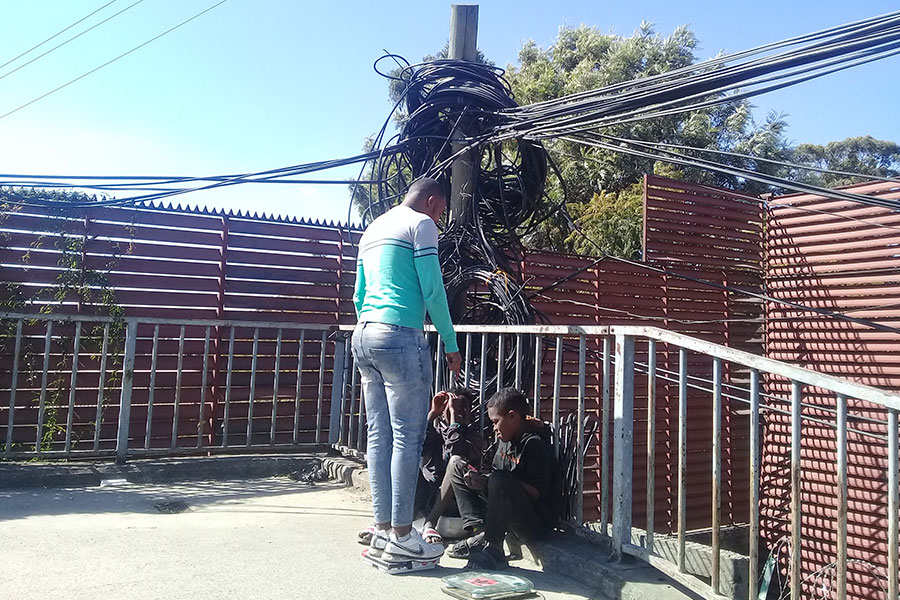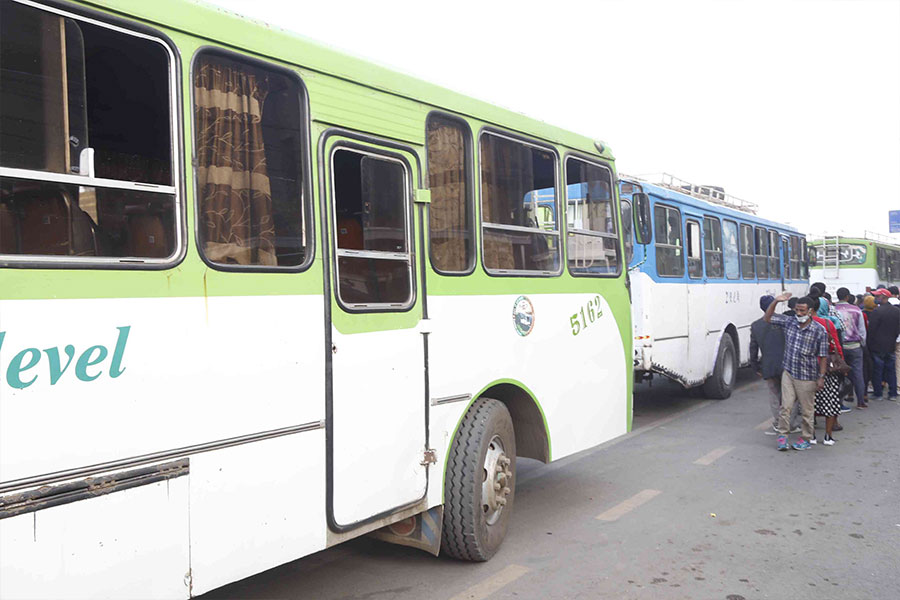
Sep 28 , 2019
By SELAMAWIT MENGESAHA ( FORTUNE STAFF WRITER )
 The Addis Abeba City Administration's Trade & Industry Bureau is set to build 16 fuel stations in the capital in partnership with multiple oil retail companies for an estimated cost of 208 million Br.
The Addis Abeba City Administration's Trade & Industry Bureau is set to build 16 fuel stations in the capital in partnership with multiple oil retail companies for an estimated cost of 208 million Br. The Addis Abeba City Administration's Trade & Industry Bureau is set to build 16 fuel stations in the capital in partnership with multiple oil retail companies for an estimated cost of 208 million Br.
The fuel stations, which are part of the City Administration's job creation scheme and formalization of trade, will employ street vendors.
The job creation scheme crafted by the City Administration will see the granting of land where the fuel stations will be built for free to 16 different oil companies including NOC, ODDA, Gomeju, Oil Libya and Yetebaberut Beherawi Petroleum.
The stations will be built and managed by the oil companies and the profit goes to them, while they will hire employees provided by the City Administration.
The 16 fuel stations will provide different services such as car washes, cafeterias and garages and will hire between 20 and 30 street vendors at each fuel station, a workforce that will be supplied by the Addis Abeba Urban Food Security & Job Creation Agency.
The Bureau made a request to the Addis Abeba City Administration's Land Development & Management Bureau asking for land as early as July 2019 and secure the land within three months, according to Dagnachewu Lole, director of informal trade formalisation at the Bureau.
"We were contacted and invited by the City Administration to hold discussions about the scheme in July 2019," said Eshetu Zeleke, CEO for ODDA Integrated Transport S.C.
"We then submitted their proposal for the project that involved details about the fuel station to be built as well as the salaries they are willing to pay," Eshetu said, who is one of the oil company owners that participated in the job creation for street vendors.
The new formalisation scheme comes after a recommendation from Deputy Mayor Takele Uma and is part of the City Administration's goals set in the current fiscal year.
Since a directive was enacted by the city two years ago that offered individuals operating in the informal sector a path toward formalisation, the Bureau has allowed street vendors to trade in designated areas.
In addition to building fuel stations, the city is also planning to build 148 small shops. To be implemented in all districts of the city, the small shops will cover an area between 30Sqm to 100Sqm of land.
The Bureau will use a raffle system that rotates periodically to grant the 148 stalls to the traders.
To date, 56,000 people have registered, out of whom 19,600 have been issued identification cards, and registration will continue until the coming month to give vendors a chance to have their businesses legally registered, according to Dagnachewu.
Street vendors have to present identification cards from a kebeleupon registration after which they will be issued a taxpayer identification number (TIN) and a badge to wear at all times while working in the marketplaces.
“The initiative is beneficial for the government, traders and the city’s residents,” said Dagnachewu. “The government will benefit from the taxes paid by the traders, the traders will have a stable venue where they can sell their goods and customers will shop without frustration."
There are currently close to 80,000 informal traders in Addis Abeba.
However, experts in the area have doubts about the success rate of the scheme.
“The City Administration builds different structures every year to create formal jobs for the public,” said Worku Mekonene (PhD), associate professor of business administration at Addis Abeba University’s College of Business & Economics.
“But because of various problems such as inadequate planning, problems in design and the low standard of the construction, they never meet the target,” added Worku.
Eshetu agrees with the expert and points to the difficulty of the new project.
“The scheme is very complicated, and there is a clear lack of detail and transparency in regard to the outlining of responsibilities,” Eshetu told Fortune.
A few months ago another scheme tried to use free space in the city to formalise the vendors. A high number of street vendors and unemployed youth built tents and makeshift sheds across the city.
But after a public outcry over the tents and sheds ruining the image of the city, the City Administration made the decision to demolish the structures and took no responsibility for their occurrence.
PUBLISHED ON
Sep 28,2019 [ VOL
20 , NO
1013]

Fortune News | Sep 14,2019

Radar | Dec 19,2021

Viewpoints | Jul 13,2024

Fortune News | Jul 17,2022

Radar | Feb 23,2019

Dec 22 , 2024 . By TIZITA SHEWAFERAW
Charged with transforming colossal state-owned enterprises into modern and competitiv...

Aug 18 , 2024 . By AKSAH ITALO
Although predictable Yonas Zerihun's job in the ride-hailing service is not immune to...

Jul 28 , 2024 . By TIZITA SHEWAFERAW
Unhabitual, perhaps too many, Samuel Gebreyohannes, 38, used to occasionally enjoy a couple of beers at breakfast. However, he recently swit...

Jul 13 , 2024 . By AKSAH ITALO
Investors who rely on tractors, trucks, and field vehicles for commuting, transporting commodities, and f...

Jun 28 , 2025
Meseret Damtie, the assertive auditor general, has never been shy about naming names...

Jun 21 , 2025
A well-worn adage says, “Budget is not destiny, but it is direction.” Examining t...

Jun 14 , 2025
Yet again, the Horn of Africa is bracing for trouble. A region already frayed by wars...

Jun 7 , 2025
Few promises shine brighter in Addis Abeba than the pledge of a roof for every family...